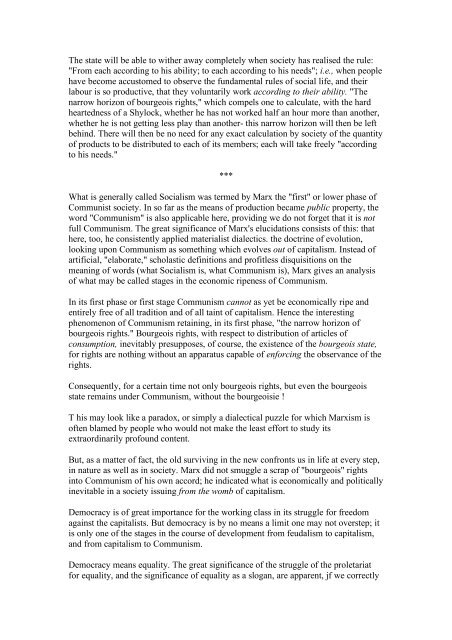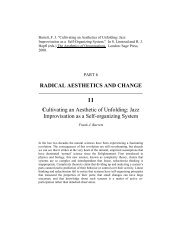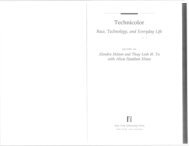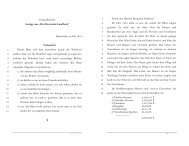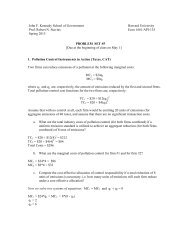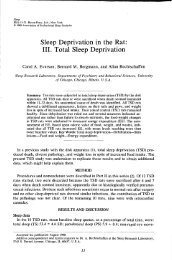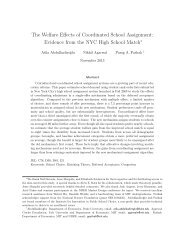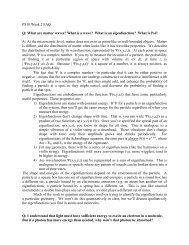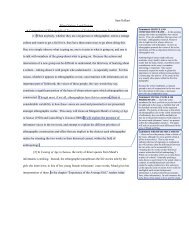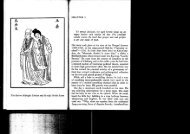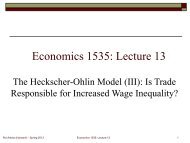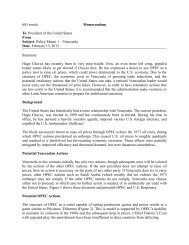Vladimir Illyich Lenin: State and Revolution, 1918 - iSites
Vladimir Illyich Lenin: State and Revolution, 1918 - iSites
Vladimir Illyich Lenin: State and Revolution, 1918 - iSites
Create successful ePaper yourself
Turn your PDF publications into a flip-book with our unique Google optimized e-Paper software.
The state will be able to wither away completely when society has realised the rule:<br />
"From each according to his ability; to each according to his needs"; i.e., when people<br />
have become accustomed to observe the fundamental rules of social life, <strong>and</strong> their<br />
labour is so productive, that they voluntarily work according to their ability. "The<br />
narrow horizon of bourgeois rights," which compels one to calculate, with the hard<br />
heartedness of a Shylock, whether he has not worked half an hour more than another,<br />
whether he is not getting less play than another- this narrow horizon will then be left<br />
behind. There will then be no need for any exact calculation by society of the quantity<br />
of products to be distributed to each of its members; each will take freely "according<br />
to his needs."<br />
***<br />
What is generally called Socialism was termed by Marx the "first" or lower phase of<br />
Communist society. In so far as the means of production became public property, the<br />
word "Communism" is also applicable here, providing we do not forget that it is not<br />
full Communism. The great significance of Marx's elucidations consists of this: that<br />
here, too, he consistently applied materialist dialectics. the doctrine of evolution,<br />
looking upon Communism as something which evolves out of capitalism. Instead of<br />
artificial, "elaborate," scholastic definitions <strong>and</strong> profitless disquisitions on the<br />
meaning of words (what Socialism is, what Communism is), Marx gives an analysis<br />
of what may be called stages in the economic ripeness of Communism.<br />
In its first phase or first stage Communism cannot as yet be economically ripe <strong>and</strong><br />
entirely free of all tradition <strong>and</strong> of all taint of capitalism. Hence the interesting<br />
phenomenon of Communism retaining, in its first phase, "the narrow horizon of<br />
bourgeois rights." Bourgeois rights, with respect to distribution of articles of<br />
consumption, inevitably presupposes, of course, the existence of the bourgeois state,<br />
for rights are nothing without an apparatus capable of enforcing the observance of the<br />
rights.<br />
Consequently, for a certain time not only bourgeois rights, but even the bourgeois<br />
state remains under Communism, without the bourgeoisie !<br />
T his may look like a paradox, or simply a dialectical puzzle for which Marxism is<br />
often blamed by people who would not make the least effort to study its<br />
extraordinarily profound content.<br />
But, as a matter of fact, the old surviving in the new confronts us in life at every step,<br />
in nature as well as in society. Marx did not smuggle a scrap of "bourgeois" rights<br />
into Communism of his own accord; he indicated what is economically <strong>and</strong> politically<br />
inevitable in a society issuing from the womb of capitalism.<br />
Democracy is of great importance for the working class in its struggle for freedom<br />
against the capitalists. But democracy is by no means a limit one may not overstep; it<br />
is only one of the stages in the course of development from feudalism to capitalism,<br />
<strong>and</strong> from capitalism to Communism.<br />
Democracy means equality. The great significance of the struggle of the proletariat<br />
for equality, <strong>and</strong> the significance of equality as a slogan, are apparent, jf we correctly


